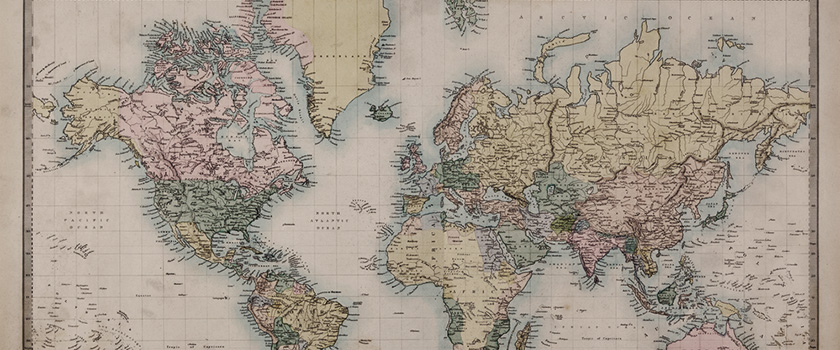From the romantic verses of William Wordsworth to the striking stanzas of Kate Tempest, poetry has arguably played as important a role as the novel in our understanding of literature from as far back as the 18th century BC all the way through to present day. Often labelled a dying art, we at addfolio welcome days like today – National Poetry Day – so that we can remind ourselves of all that is great about the poetic form. Whether it be a sonnet, limerick, spoken word, or even a haiku, we think poetry ought to be celebrated in all of its glory!
Take a look at some of the team’s all-time favourites…
Emily
Sonnet XVII – Pablo Neruda (1959)
‘I love you without knowing how, or when, or from where.
I love you straightforwardly, without complexities or pride;’
As an English Literature graduate, it’s pretty tough for me to choose just one, but this poem by Pablo Neruda has been up there for as long as I can remember. I first discovered it when I saw the film Patch Adams where Robin Williams reads it to his love interest in such a way that it makes my hairs stand up every time. (I also cry every time!).
It’s one of those poems I can read over and over again, and see it differently on each occasion. To choose just a small snippet to include in this post was slightly painful, but I love the two lines above purely for their simplicity.

Alice
The Rime of the Ancient Mariner – Samuel Taylor Coleridge (1798)
‘Alone, alone, all, all alone,
Alone on a wide, wide sea!
And never a saint took pity on
My soul in agony.
The many men, so beautiful!
And they all dead did lie:
And a thousand thousand slimy things
Lived on; and so did I.’
I too am an English Lit graduate, but somehow, to my shame, I always struggled with poetry. From being forced to study Plath before I was old enough to empathise, to feeling awkward while my uni classmates tearfully waxed lyrical over sonnets – I just never got it.
One of the few poems to resonate with me is The Rime of the Ancient Mariner. This poem has everything you could want from a poem (except, perhaps, brevity). The language is beautiful, it’s easy to understand, it presents a moral lesson, and it whisks you into its story. Like a childhood favourite Kenny Rogers song, it’s a guilty pleasure, and perhaps a tad cliche as a favourite, but I love it, and that’s that.
Rochelle
Share The Road Campaign – TFL (2014)
I hold my hands up, I never really got into the bygone poetry thing. Yes, I can appreciate the sound play, the rhyme, the rhythm. I acknowledge Shakespeare was groundbreaking, that Wordsworth didn’t just have a strangely appropriate surname. But it doesn’t pull on me.
However, modern variations of poetry – in song, in short film adaptations, in advertising – those, to me, have a draw. I’m a strong advocate for visual pairings with intelligent and evocative word choices. TFL delivered this for me in 2014 with their Share The Road campaign. Driven by a non-commercial objective obviously helped, but their coupling of spoken word and striking video drove home (get it?) the concept of road awareness and the consideration that all drivers, cyclists and pedestrians are just humans, too.

Rich
Favourite Words – Hayley Francis (2015)
“His favourite word is nostalgia,
her favourite word is map.
She always longs to run away,
Whilst he longs to go back…”
Okay so this is supposed to be a list of favourites, but at the time of writing, I have already spent far too much time trying to pick a definitive favourite of Hayley Francis’s back catalogue of smart, silly and at times heartbreaking poetry… So I just decided to go with one that has ‘favourite’ in the title. A good friend and an even better poet, more people need to know about her as I feel there’s something there for everyone. The poem chosen also resonated with me as I’m sure it would with many others – having experienced a past relationship where two people simply wanted different things… and it only takes four lines to get that feeling across.
Elliot
In a Station of the Metro – Ezra Pound (1884)
‘The apparition of these faces in the crowd;
Petals on a wet, black bough.’
Ezra Pound’s imagist poem has an economy and precision of words that I can appreciate.
I’ve always loved it because of how it distills a moment down into basic images, and ultimately a feeling.
Apparently the original poem was over 30 lines, and Ezra Pound cut it down to just fourteen words. You’ll also notice that there are no verbs.
It’s a poem that perfectly captures a moment and a feeling as succinctly as possible. I never did get epic poetry, why read a long poem when you can read a book? But this poem, I get.

Claudia
Perhaps – Vera Brittain (1934)
‘Perhaps the summer woods will shimmer bright,
And crimson roses once again be fair,
And autumn harvest fields a rich delight,
Although You are not there’
Although I hated studying poetry at school, and the book from which this poem came from was the object of hatred amongst my classmates, (wartime poetry is not very cool when you’re 14), Brittain’s sensitive words have stayed with me at times of mourning. The poem is written for Brittain’s fiancé, killed just four months after their engagement by a sniper, and speaks of her trying to comprehend a world without him in. She speaks of all the joys of life and hopes that she will once again be able to relish them, and despite her beloved one being missing, seasons will still change and life will go on. I think the sentiment is sadly recognisable to anyone who has lost a loved one – we know the world is still spinning, despite our great loss.









